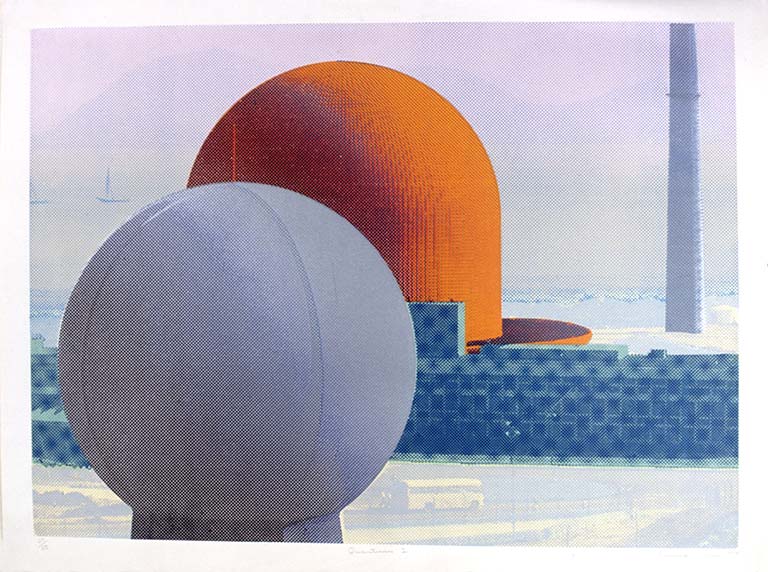
Quantum 1, 1974
The image is of the Trombay nuclear power station, which made headlines that year due to India exploding its first nuclear test bomb. Lijn had cut the photo from the newspaper about a year before the uproar, intrigued by the forms of the power station. It is a sequel to her set of Industrial Landscapes.
read more
read more
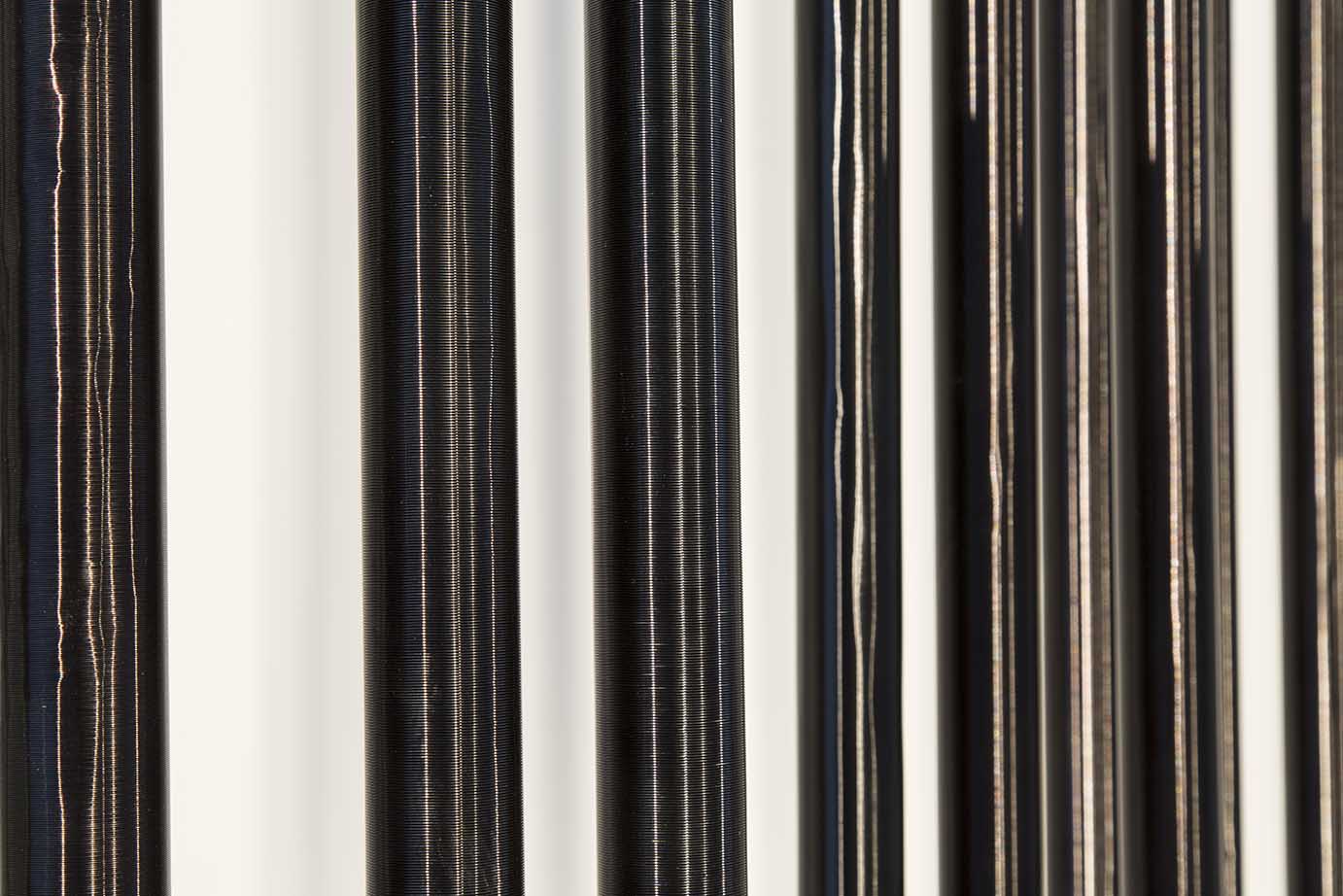
Threes, 1974-1975 / 1990
Threes, is a group of six similar sculptures which can be arranged to occupy a space in changing configurations. The different juxtapositions influence the way the movement of each cylinder is perceived in relation to the others.
read more
read more
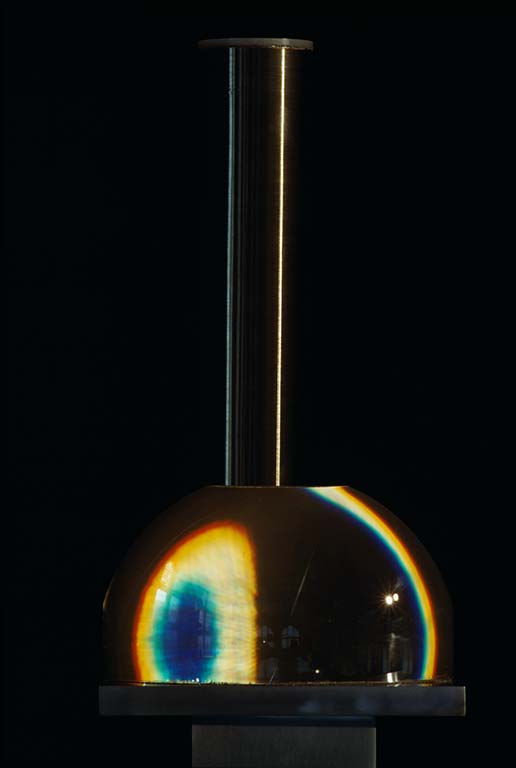
Denslens, 1974 – 1975
Denslens was one of four sculptures made in 1974 using a wire-wrapped rotating cylinder and an emblematic lens.
read more
read more
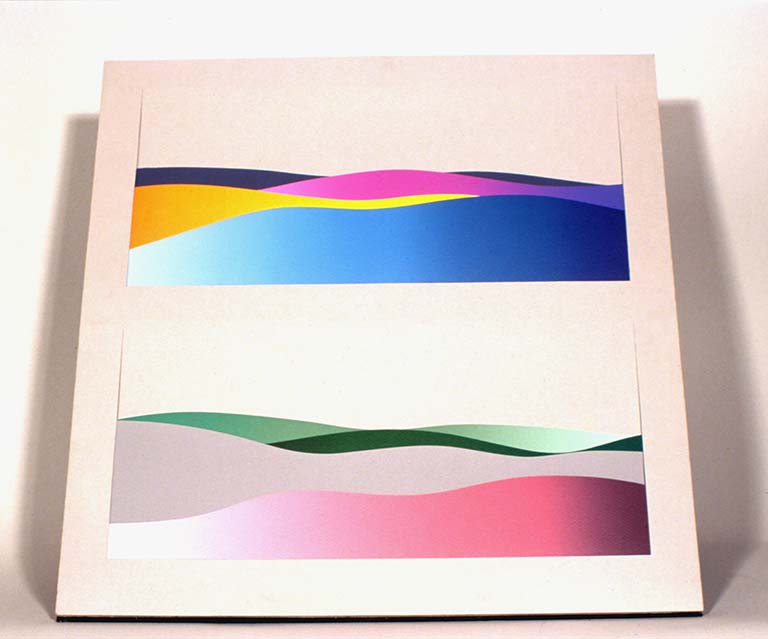
Landlines, 1973
Inspired by a trip through the French Alpilles, during which Lijn watched the horizon continually change shape, she decided to make a 2 dimensional artwork which would be an image of continual change.
read more
read more
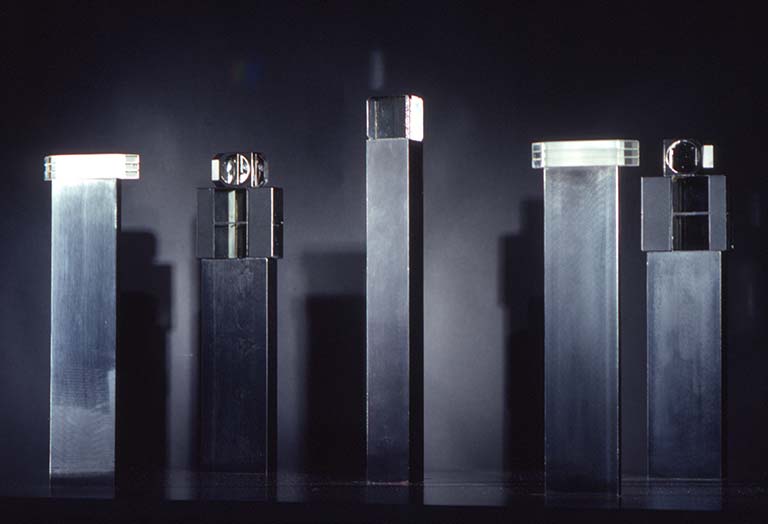
In the Valley of Darkness, 1973
This is the first of Lijn's works that speaks about Light contained within Darkness. The idea of light within darkness, or spirit within matter is central to her work.
read more
read more
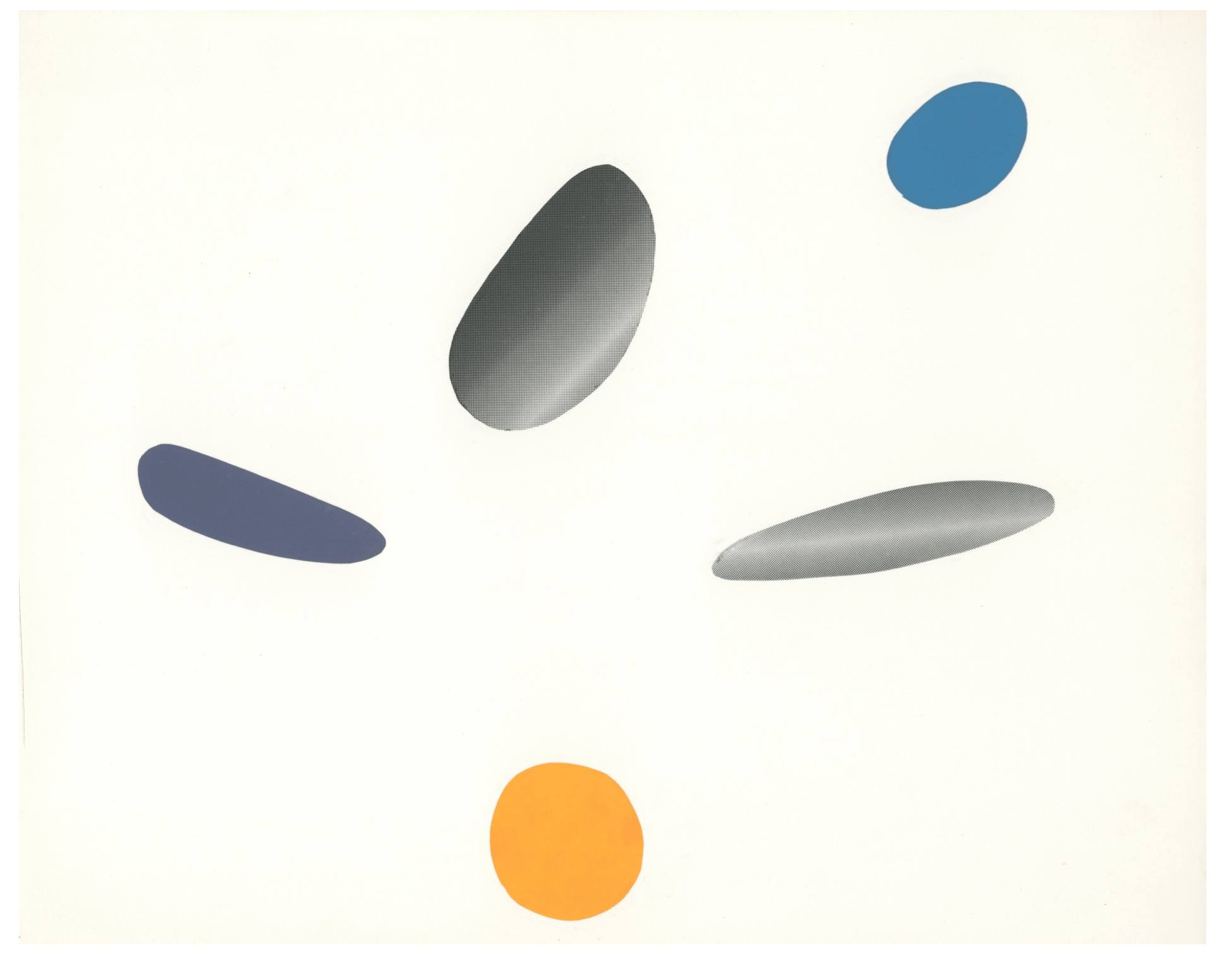
Forcefields, 1970-1972
In the late 60’s Lijn began experimenting with Letrafilm on paper. In this series, Lijn uses simple forms and much like her series Flowlines, the works explore the relationships between these forms. Through layering the Letrafilm, Lijn is able to create different dimensions and subsequently depth to the image.
read more
read more
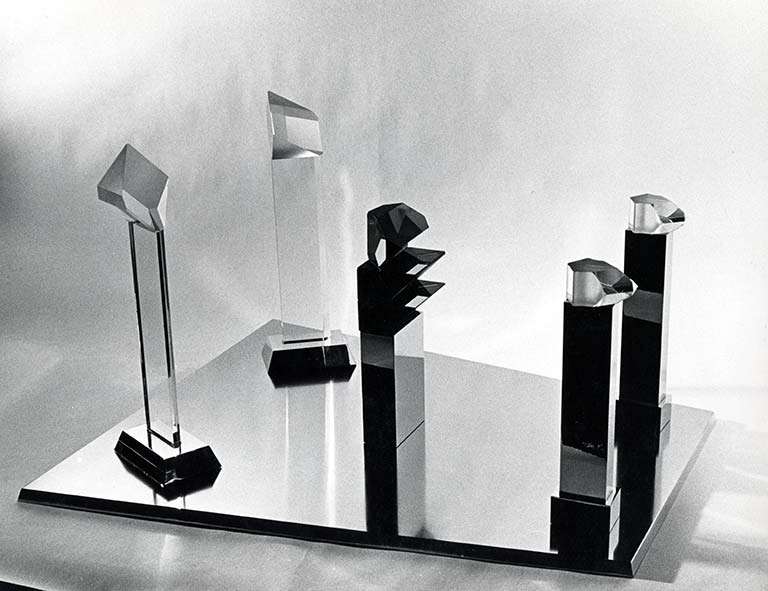
In Sua Memoria, 1972
The first in a series of works called Rites of Passage, In Sua Memoria is a memorial to Lijn’s father who fell ill and died while she was making the sculpture.
read more
read more
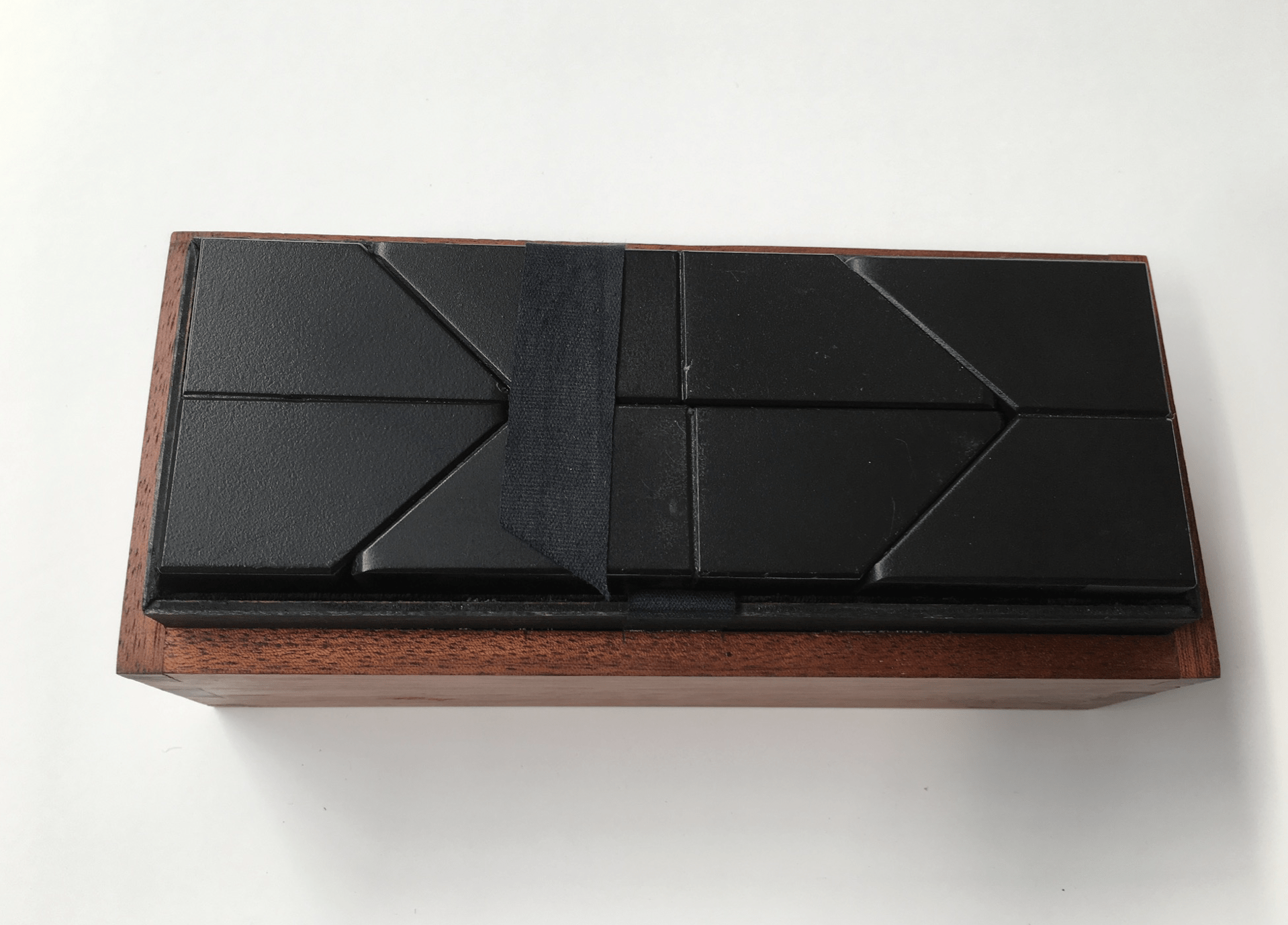
Crystal Clusters (Rectangular), 1972
One of a series of 9 Crystal Clusters, works using periscope prisms made for 2nd WW Centurion tanks.
read more
read more
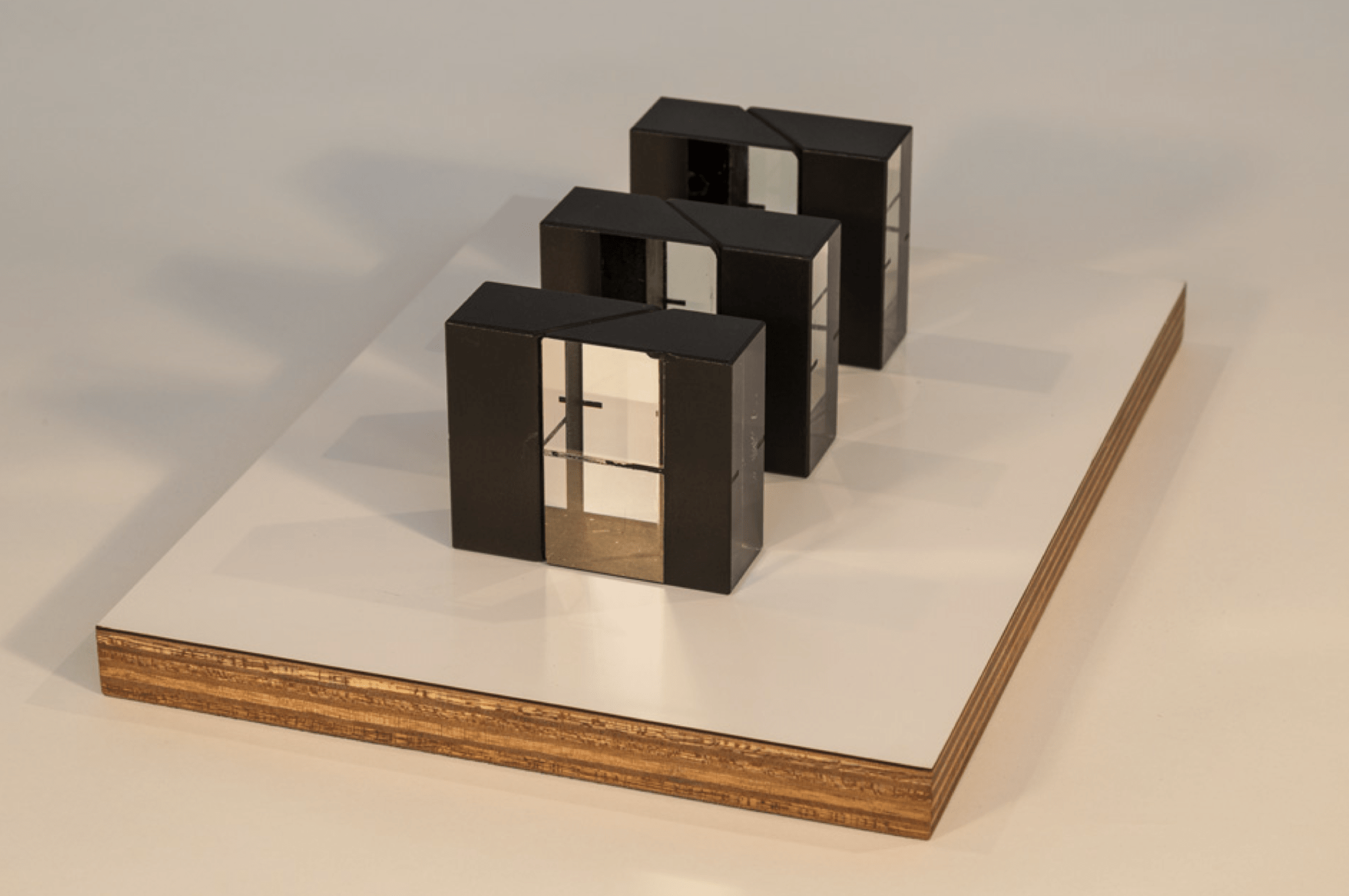
Crystal Clusters (Small), 1972
One of a series of 9 Crystal Clusters, works using periscope prisms made for 2nd WW Centurion tanks.
read more
read more
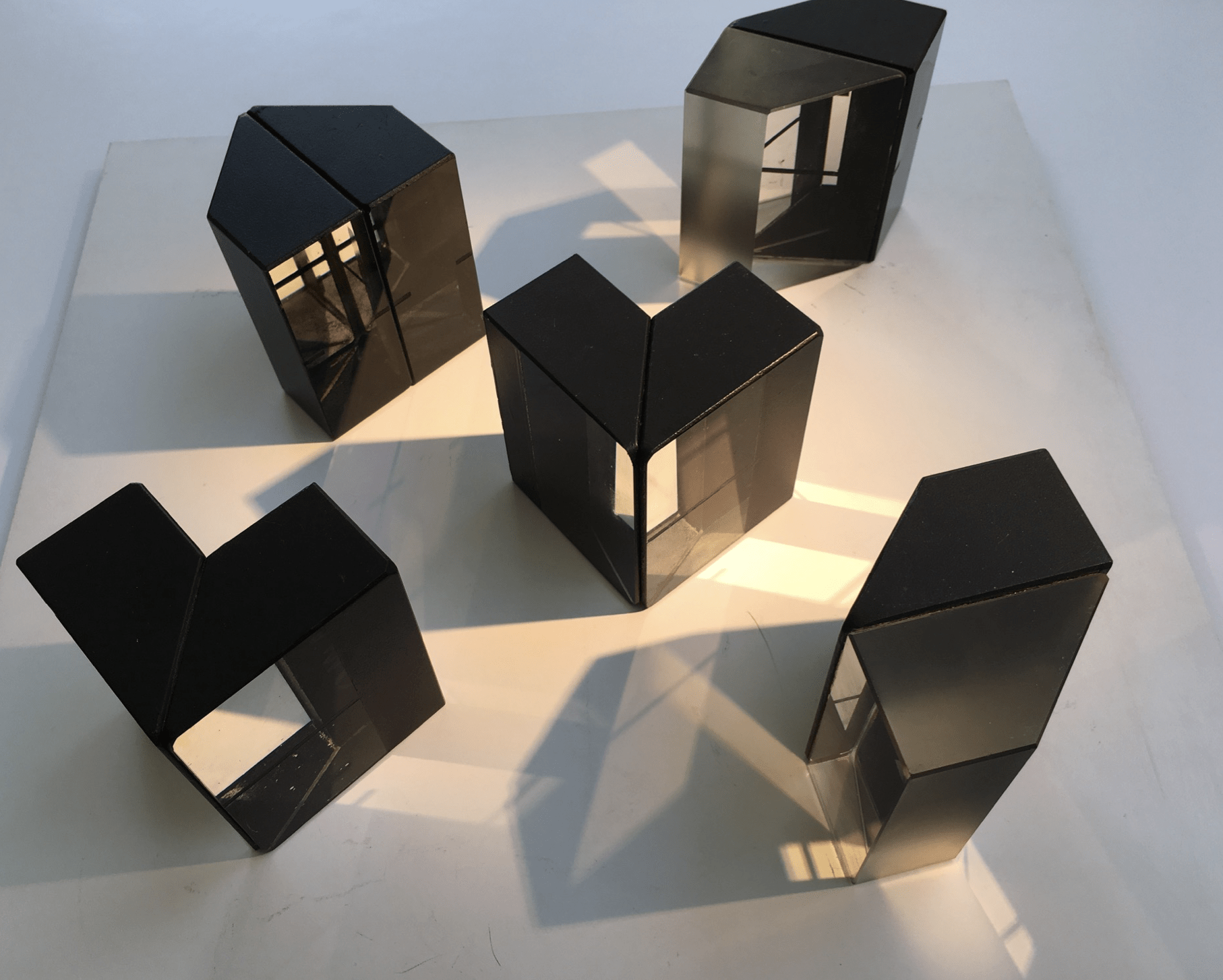
Crystal Clusters (Large), 1972
One of a series of 9 Crystal Clusters, works using periscope prisms made for 2nd WW Centurion tanks.
read more
read more
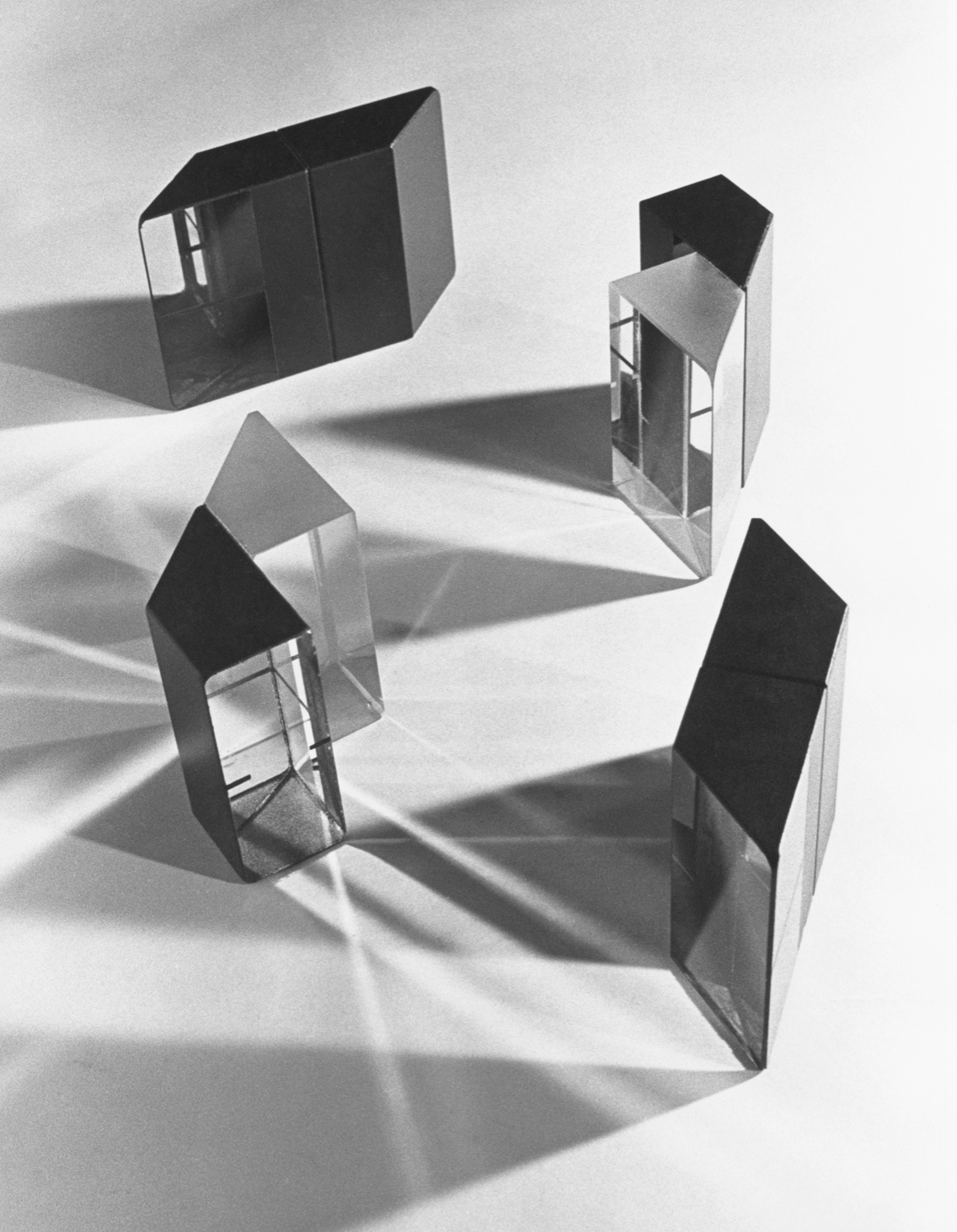
Crystal Cluster (Rhomboid), 1972
One of a series of 9 Crystal Clusters, works using periscope prisms made for Second World War Centurion tanks.
read more
read more

Rites of Passage, 1972
Rites of Passage belongs to a series that celebrate the moments of passage between different states of consciousness.
read more
read more
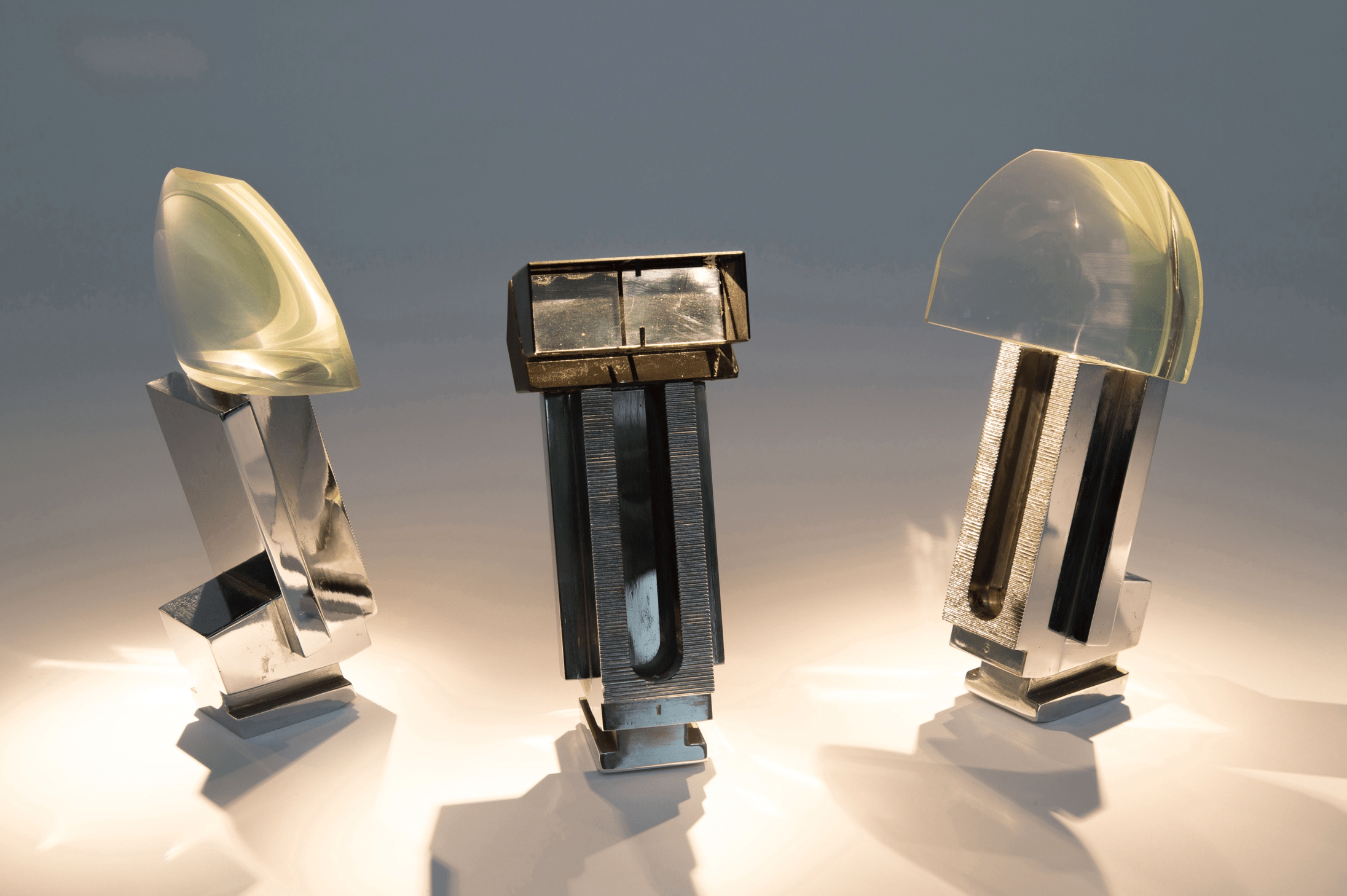
Three Who See, 1972
Lijn was fascinated by the use of prisms as tools for vision in both industry and war. Here were materials which were used both for destruction and creation. Not only that, they were real tools for vision, enabling people not only to see and sight from within bind boxes, but also to see within solid matter by analysing the spectrum of light given off by gases, for example in distant stars.
read more
read more
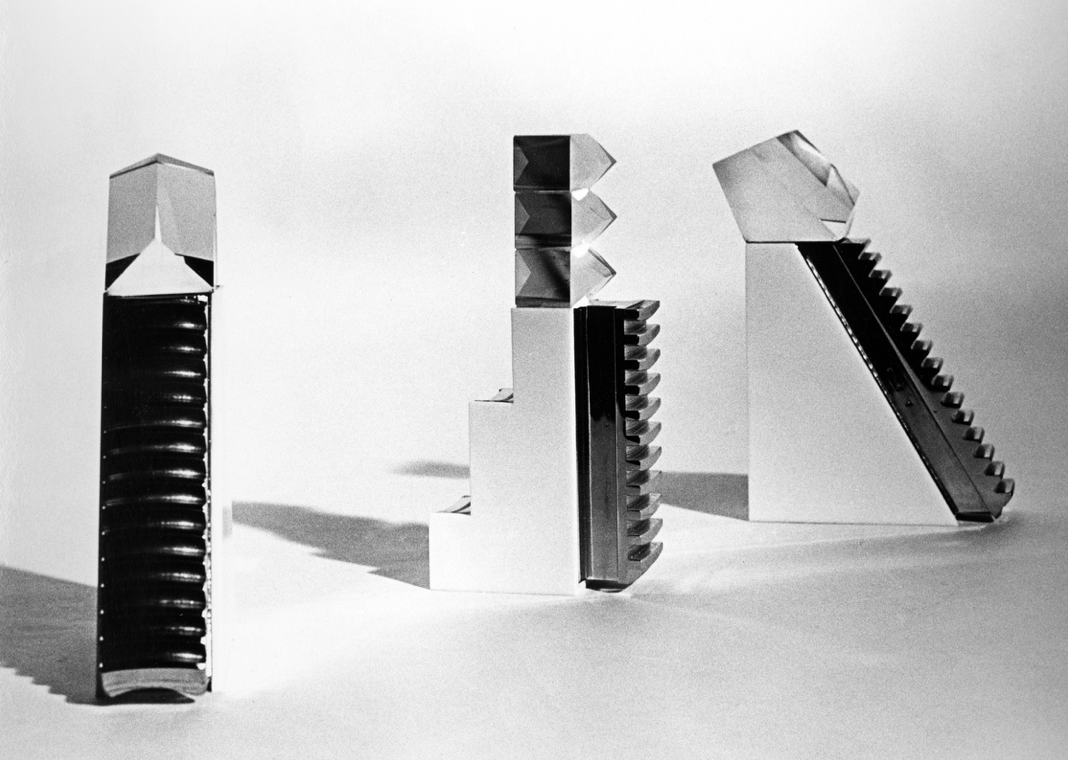
Tarahumaras, 1972
Lijn was fascinated by the use of prisms as tools for vision in both industry and war. Here were materials which were used both for destruction and creation. Not only that, they were real tools for vision, enabling people not only to see and sight from within bind boxes, but also to see within solid matter by analysing the spectrum of light given off by gases, for example in distant stars.
read more
read more
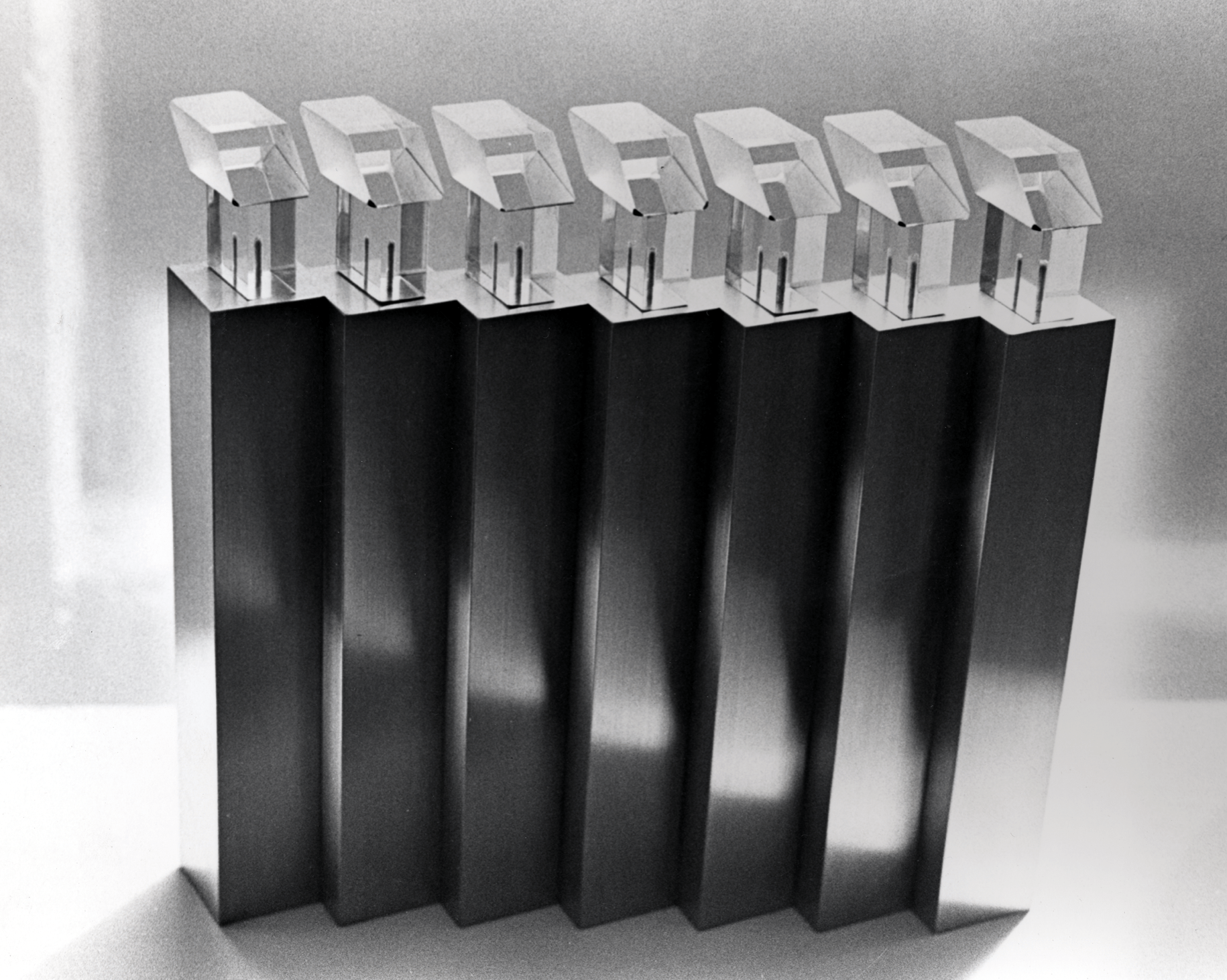
Crystal Steps, 1972
Lijn was fascinated by the use of prisms as tools for vision in both industry and war. Here were materials which were used both for destruction and creation. Not only that, they were real tools for vision, enabling people not only to see and sight from within bind boxes, but also to see within solid matter by analysing the spectrum of light given off by gases, for example in distant stars.
read more
read more
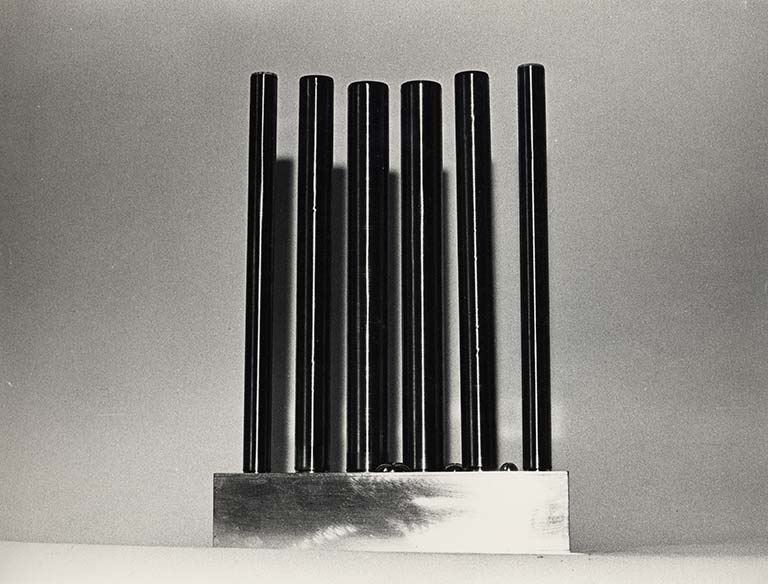
Linear Light Forest, 1972
A transformable sculpture, each cylinder can be moved to different base positions on the platform which creates each time a differently configurated work.
read more
read more